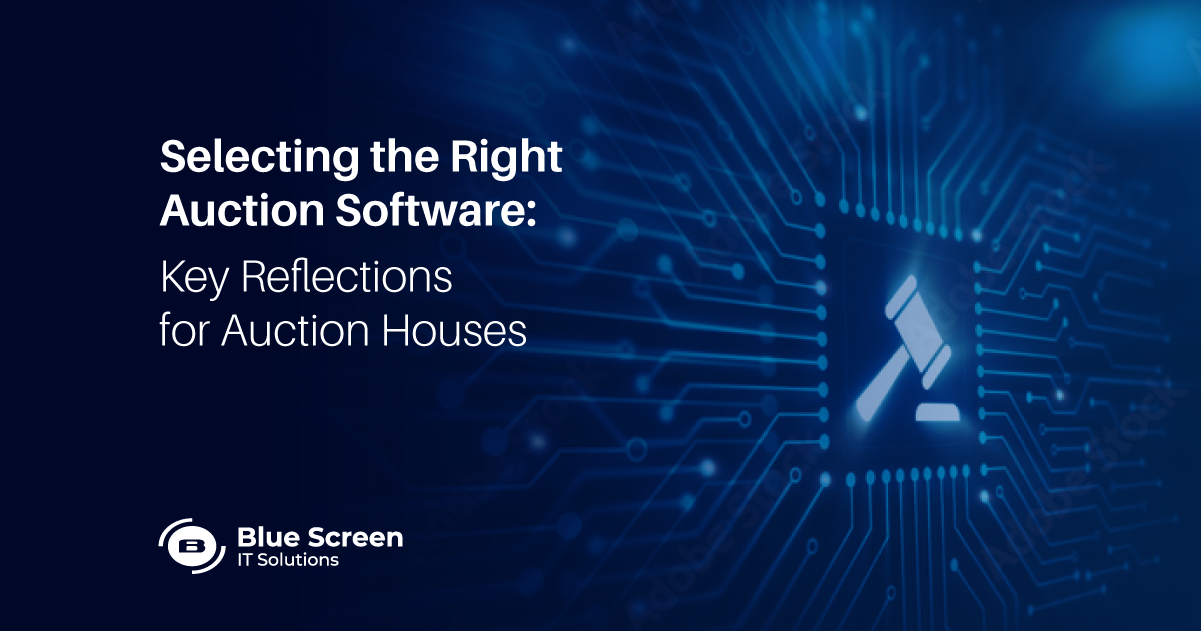The world is going through a wide transformation process, especially concerning the digital landscape. Companies need to work on simplifying and automating everyday tasks and, at the same time, increasing competitiveness and revenue, scaling the business and optimizing resources to the maximum. How to facilitate all this? Efficient and effective technology is definitely a great ally. And, when we are talking about the auction industry, Auction Software has become the go-to solution for driving success.
The auction industry and the digital shift
Auction houses have long been a staple in various areas, from art and antiques to real estate and vehicles. Traditionally, these businesses relied on manual processes and in-person events to conduct sales. However, with the advent of digital technology, the industry is experiencing a significant transformation. The shift to digital platforms allows auction houses to reach a broader audience, operate more efficiently and provide a seamless experience for both buyers and sellers.
Did you know that according to Statista, the global auction market size amounted to over $25 billion last year? When looking specifically into the digital reality, and with the major auction houses strengthening their digital departments since the COVID-19 lockdowns, the fact is that online auctions skyrocketed. Statistica says that, combined online-only sales of Christie’s, Sotheby’s, and Phillips generated 900 million U.S. dollars, a fivefold increase from 2019.
Understanding Auction Software
As an ERP specifically designed to address this sector, an Auction Software is a must-have to streamline operations, enhance customer experiences and boost profitability. It can support physical, online and hybrid auctions and encompasses a range of features, from inventory management and customer relationship management (CRM) to sales execution/monitoring and financial tracking.
The primary goal is to automate and streamline auction processes, ensuring that every aspect is handled smoothly. The advantages are clear:
Efficiency: Automates routine tasks, reducing manual effort and increasing productivity.
Scalability: Supports growth by handling larger volumes of inventory and transactions.
Customer Experience: Enhances communication with buyers and sellers, providing a better overall experience.
Data Management: Makes it easier to control and analyze performance. Besides, it is the data that grants to sediment internal knowledge and recreate the history of each item, classify it and keep it properly available.
Integration: Easily integrates with e-sales tools and existing or third-party auction platforms (for instance, if you are in the fine art, antiques and collectibles auction business, take a look at Invaluable – one of the largest ones of its kind).
How to select the best software?
Choosing the right Auction Software is critical to the success of your auction house. Here are some essential factors to consider:
- Ease of Use: The software should be user-friendly, with an intuitive and responsive interface that makes it easy for staff to learn and use effectively – whatever the device and location.
- Customization: Look for a solution that can be tailored to fit the specific needs of your auction house, whether you deal in real estate, vehicles, art, or consumer goods.
- Inventory Management: A powerful workflow-based inventory management system is crucial for preparing stock, managing lots, and ensuring accurate pricing and cataloging.
- CRM Capabilities: Effective customer relationship management is vital for converting leads, communicating with vendors and buyers, and holding all necessary data.
- Sales Management: The software should facilitate every stage of the sales process, from registering attendance and running the sale to managing provisional bids and finalizing transactions.
- Financial Tools: Robust financial tools are necessary for handling invoicing, payments, and tracking receipts.
- Integration: Ensure the software can integrate seamlessly with existing systems, online auction platforms, and e-sales tools.
- Security: Given the sensitive nature of the data handled, the software must offer strong security measures to protect against breaches and ensure compliance with relevant regulations.
- Support and Maintenance: Reliable customer support and regular updates are essential to keep the system running smoothly and address any issues promptly.
- Scalability: As your auction house grows, the software should be able to scale with you, accommodating increasing volumes and more complex operations.
Blue Screen’s XPressBSS
We understand the unique challenges faced by auction houses and have been working side by side with leading companies on this market for over 15 years with XPressBSS. This customized all-in-one ERP solution is built to support the entire auction cycle, from qualifying vendors and buyers to preparing and running sales and managing invoicing and payments. And the best part? It addresses all that we’ve mentioned before.
Ask for a demo and discover how partnering with Blue Screen and adopting XPressBSS can make your business much more efficient and easier to run.


